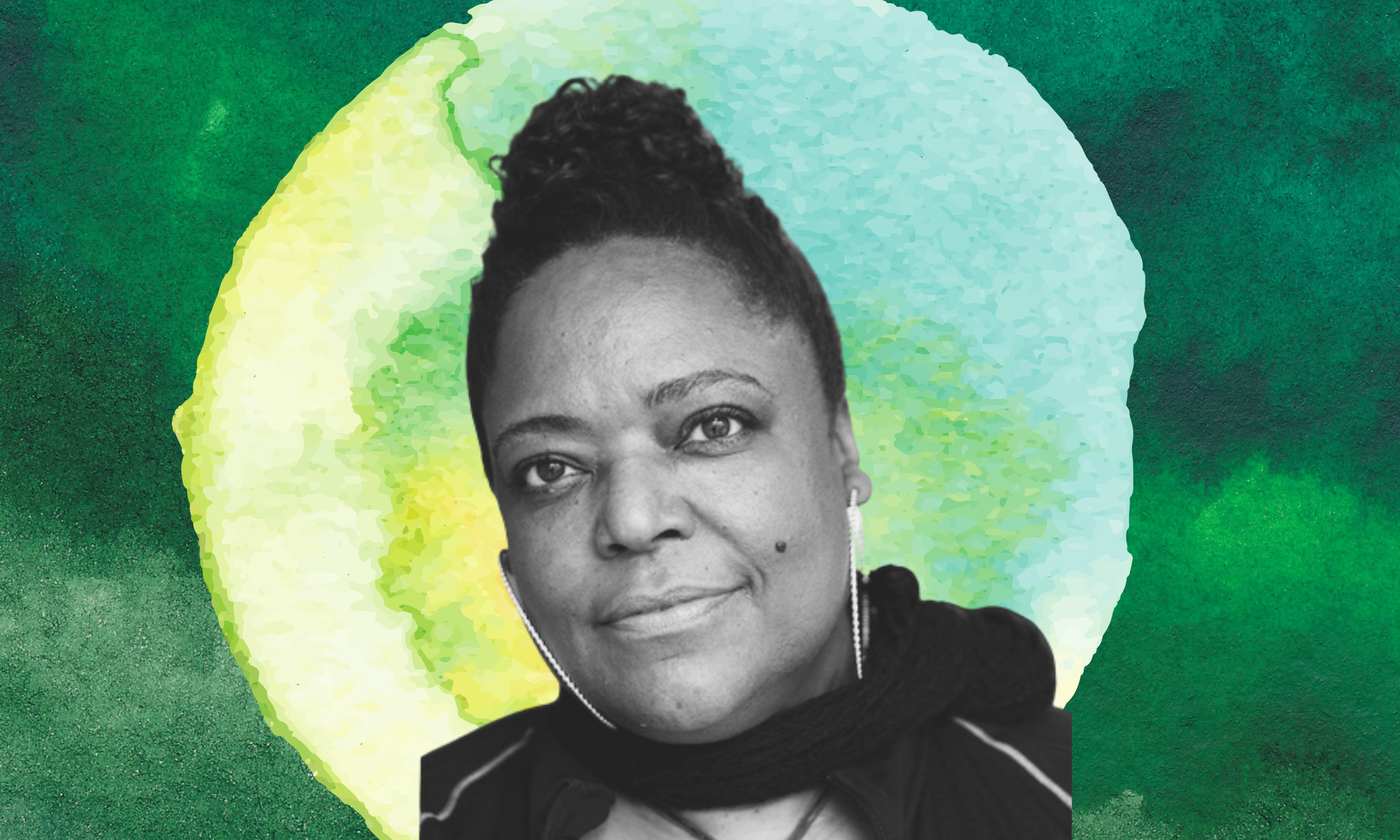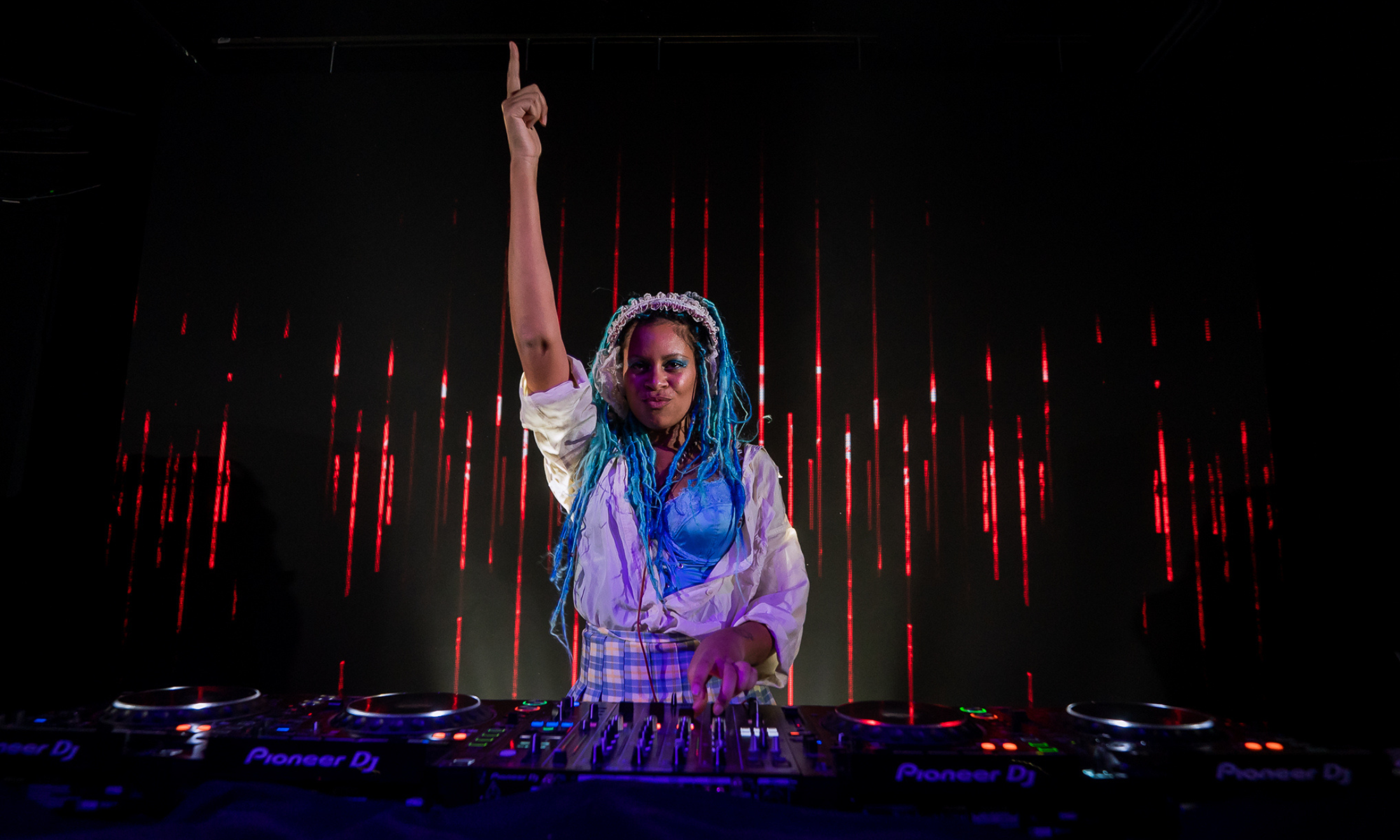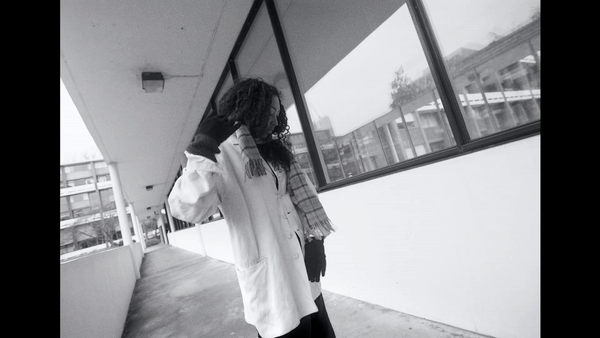Remembering the ‘First Lady of Detroit’: the legacy of dance pioneer K-HAND
As a Black woman innovating in Detroit techno, producer and DJ Kelli Hand shifted the goalposts for those who came next. Following her recent death, we remember a game-changing talent.
Sunnie Fraser
14 Aug 2021

Max Schiano
Last week we lost a radical pioneer. A woman who inadvertently shifted the goalposts for all those who came next. An icon who spent the duration of her extensive career being criminally overlooked.
Kelli Hand – also known as K-HAND – was a producer and DJ from the Motor City (Detroit, USA) who initiated her career by self-releasing music on her label, Acacia Records, from 1990. The phenomenal Think About It EP was her first release for which she impressively received support from the likes of Jeff Mills, Robert Hood, Mike Banks and Mike Clarke – all legends of Detroit techno.
From there on out Kelli released music across a 30-year timespan on various cult labels like Warp, Trip and Tresor. Following her untimely death on 3 August 2021, a plethora of fans and industry professionals have taken to the internet to pay tribute and reflect on the incredible life of one of the most esteemed figures in the game.
“K-HAND wasn’t trying to start a movement but, following her notoriety, the landscape was never the same again”
Many years ago, in the dingy upstairs room of a west London record store, I had my first significant encounter with K-HAND. As with most people with an interest in dance music, I knew her by name and was familiar with the classics (‘Remember When’, ‘Project 5 – Untitled B1’ etc). I am embarrassed to say, however, I hadn’t dug very deep. I had unwittingly fallen into the trap of paying close attention to the Detroit paterfamilias like Juan Atkins and Jeff Mills; seemingly bypassing the treasure trove that is K-HAND.
Through the store’s sound system, a spacey, sci-fi sampled intro caught my attention before it sharply transitioned into a fat analogue-crafted bassline. The broken beat, electro-tinged track oozed melancholy while still retaining an air of euphoria. The shopkeeper was playing ‘Heaven’, from K-HAND’s 1997 EP The Art of Music. I was thrown by the realisation that I had somehow neglected an artist whose production was so undeniably transfixing and timeless. How could I have missed this? Amongst the oversaturated pool of men in the scene, Kelli Hand had flown under my radar.
“The ‘First Lady of Detroit’ is actually her official title, granted to her by the city council in 2017. But arguably, K-HAND was more than that: she was the First Lady of Electronic Music”
K-HAND produced electronic music with sensuality and soul. In a 2016 interview with RA, she explained: “a lot of my songs are lovey-dovey.” She was more than just a constructor of big room club tracks, although she did that too with extraordinary finesse.
From that moment in that record store, I felt an innate affinity with Kelli Hand, and had a very conscious bias toward her in comparison to her counterparts. In part, this was down to the versatility and pure emotion evoked through every one of her releases, but more than that, I couldn’t help being captivated by her unwavering defiance of the patriarchal conventions that still deluge dance music.
“She was Detroit’s queen of techno, she was number one, because there were no other women doing techno in Detroit,” her contemporary Stacey ‘Hotwaxx’ Hale told Dazed. The cultural magnitude of this cannot be underestimated. K-HAND was an innovator, fiercely audacious and an utterly formidable force. The ‘First Lady of Detroit’ is actually her official title, granted to her by the city council in 2017. But arguably, K-HAND was more than that: she was the First Lady of Electronic Music. ‘Trailblazer’ seems to be the buzzword pervading the conversation around her sad passing and, while I want to avoid tedious reiteration, a trailblazer is what she was.
In a 1997 interview with MTV, Kelli spoke of the lack of women represented in Detroit: “I really don’t like to address the issue of being the only woman because the music, I think, is important, moreso than being the ‘only one’”. When probed on the same notion, she told RA on a 2019 podcast that “I don’t deal with that” – implying her ability to simply rise above the prejudice. K-HAND wasn’t trying to start a movement but, following her notoriety, the landscape was never the same again. She set the foundations and demonstrated to other women that space could be made despite long-established bigotry. She defied the confines of her marginalisation and continued to flourish through raw talent and determination.
Three decades following K-HAND’s emergence on the scene, the narrative appears to be shifting for Black women in electronic music. Although it continues to be an industry of patriarchal (and white) dominance, it feels like women of colour in dance music are having their moment: look at Jayda G, Anz, Sherelle, OK Williams, Aluna, to name a few. After a major period of social upheaval, the time is now for marginalised people to reoccupy their space in an industry that is built on Black excellence.
Predictably, much of the activism of the past few years has been performative – but, among it all, there has been some true systemic advances in the right direction. Various Black-led initiatives like Radio Silence, Black Artist Database and Black Artist Coalition are working to implement the changes from the ground up. Far from tokenistic, these platforms are consistently doing the work and we must retain hope that larger corporations continue to pay attention to the noise.
Guided by the legacy of K-HAND’s persistent non-compliance, it is on the head of those in the industry as a collective to continue warping the trajectory in the same way she did.
Rest in power, our Kelli Hand.









